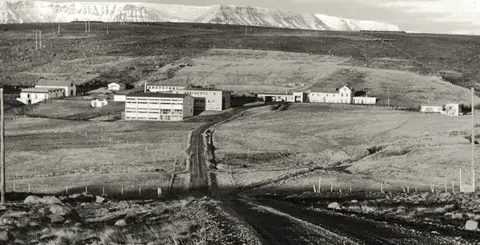
History Walk of Keldnaland
Keldur , 112 Reykjavík
Dagsetningar
University of Iceland’s Institute for Experimental Pathology at Keldur, Keldnavegur 3
11, september 2025
Opið frá: 17.30 - 19.00
Vefsíða
https://borgarsogusafn.is/vidburdir?page=1&time=future
Aðgangseyrir Sjá á opinberri vefsíðu
Welcome to a free history walk through Keldnaland, Thursday, 11 September from 17:30–19:00. Please note that the walk will be conducted in Icelandic.
Anna Lísa Guðmundsdóttir, project manager of archaeology at the Reykjavík City Museum, and Salvör Jónsdóttir, urban planner, will lead guests through Keldnaland with a special focus on archaeological and cultural heritage sites. Both have conducted research in the area. Salvör carried out a building survey of Keldur and Keldnaholt in 2022, and Anna Lísa was one of the contributors to the archaeological registration of the same area in 2024.
We will meet at the parking lot by the University of Iceland’s Institute for Experimental Pathology at Keldur and walk to the old farmstead at Keldur and beyond, including parts of the Gröf area.
The best way to reach Keldur is via Stórhöfði. The walk takes place outdoors and over uneven terrain, so please wear sturdy shoes and dress according to weather.
It is not known exactly when settlement began at Keldur, but records of farming there date back to the 14th century. Agriculture continued until 1940, when the state purchased the land to establish a research facility for the university. The Institute for Experimental Pathology at Keldur was formally established in 1946.
There are dozens of archaeological sites in Keldur that bear witness to life, work, and transportation in the area in earlier centuries. The buildings currently standing at Keldur are also an important part of the history of scientific research, which continues at the site to this day.
The Reykjavík City Museum plays a diverse role in the protection of archaeological sites and preservation of cultural heritage. For years, it has conducted building surveys and archaeological registrations in accordance with zone planning laws. A building survey is an architectural and cultural-historical study based on documentation of houses and structures, supported by historical sources, field surveys, and assessments of the preservation value of individual buildings, building complexes, settlements, and the character of the built environment. Archaeological registration is a non-invasive archaeological study involving documentary and field surveys of heritage sites in a given area, including descriptions, location, condition, and type of site, as well as assessments of age, function, and preservation value.
This event is held in celebration of the European Heritage Days.
#EHD #EHDIceland #EuropeanHeritageDays
